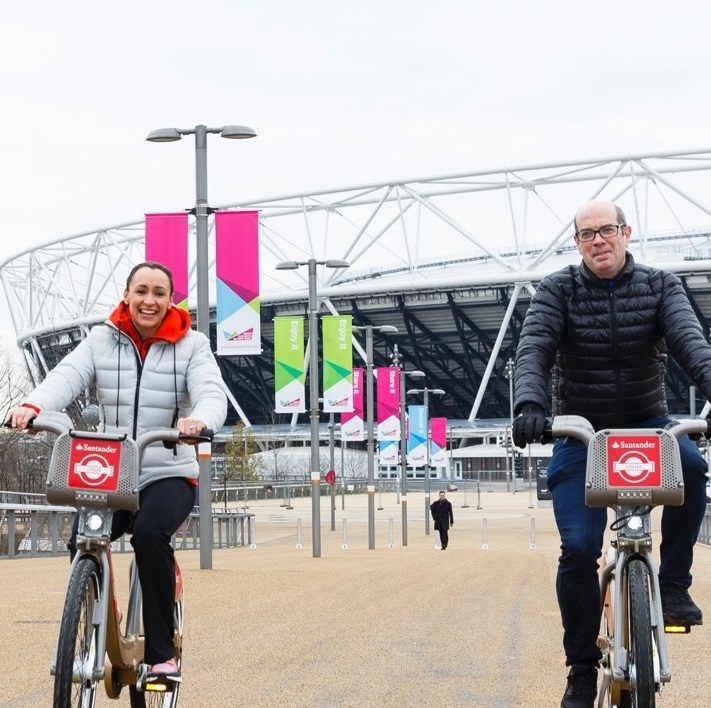A suspension railway, a passenger-carrying drone or a self-driving car... Although it seems like science-fiction, these types of vehicles will be a reality in the coming years, and some already have a launch date. Sustainability, technology and safety will be paramount.
When we imagine what the future will look like, we probably fantasise about flying cars or supersonic planes, like the ones we see in films. One of our highest expectations for the years ahead is transport due to, among other factors, the need to combat climate change, as this sector accounts for one quarter of the world’s greenhouse gas emissions, according to United Nations data.
Heavy traffic in large cities and road accidents are also problems that are being worked on by the transport industry, which is relying heavily on technology. Artificial intelligence, big data, internet access and the use of renewable energy are key to giving us an idea of how we will be able to move around in the medium term.
Environmentally-friendly engines
Sustainability and energy efficiency will undoubtedly be the driving force for transport. Innovations such as hydrogen fuelled and electric engines are gradually taking over the traditional fossil fuel engines (petrol and diesel), which have for decades emitted large amounts of carbon dioxide (CO2) into the atmosphere.
For example, the European Commission planned to reduce the sector’s CO2 emissions by 90% in 2050. As a result, it is increasingly common to see electric or hydrogen cars on the streets, as well as more charging points on public roads and in busy areas (near restaurants, shopping centres, parks, etc.)
Connected and smart cars
Self-driving cars are one of the hopes for safer, more efficient and comfortable transport. The key to making this possible is connectivity. Manufacturers have been developing this for years and several pilot tests have been carried out. One of the most recent tests was carried out during the Tokyo Olympic Games, where athletes used self-driving buses to commute to their training sessions and competitions.
The viability of such vehicles largely depends on their ability to communicate with the environment in which they move, and therefore, in addition to using artificial intelligence to make driving decisions, they will also require data from other cars as well as traffic lights, traffic agencies, weather conditions, parking spaces and other elements to be taken into account during the trips made.
Road safety experts have high hopes for self-driving cars, as accidents, which are currently caused by negligence or human error, would disappear.

Trains that seem to fly
Up until now, planes are the mode of transport that have been carrying the most passengers at the highest possible speed. However, Japan is preparing for the launch of a high-speed train capable of exceeding 600 km/h in 2027, thanks to a combination of aerodynamic design and magnetic levitation, i.e. carriages that are suspended some five centimetres from the rails, eliminating friction.
Engineers in the United States are planning to develop a train that exceeds the 1000 km/h barrier, so that you could, for example, travel from Los Angeles to Miami in just four hours. Currently, the same journey takes over five hours by plane.
Micromobility in large cities
This concept refers to light vehicle transport systems such as scooters, bicycles or electric motorcycles, designed for short journeys and to relieve traffic, mainly in city centres. Although this concept is now a common practice in several countries around the world, its potential is such that the US consultancy Frost & Sullivan concluded in an analysis that this type of mobility will gain even more prominence in the future because it is affordable, safe and convenient.
Drones as an alternative form of transport for the coming years are also at an experimental stage. In China, for example, they are testing a prototype capable of carrying a passenger at 100 km/h, 500 meters above ground, with a flight autonomy of 25 minutes. It would be booked as a taxi service through an app.
Car sharing, a growing trend
Car sharing is another trend that has also been successfully implemented in several countries around the world and which shows sign of becoming more established. This mobility option is characterised by the fact that the vehicle is available to the user on an occasional basis, i.e. when they need it. Therefore, the same car can be used by several people on the same day, increasing its efficiency and reducing traffic.















